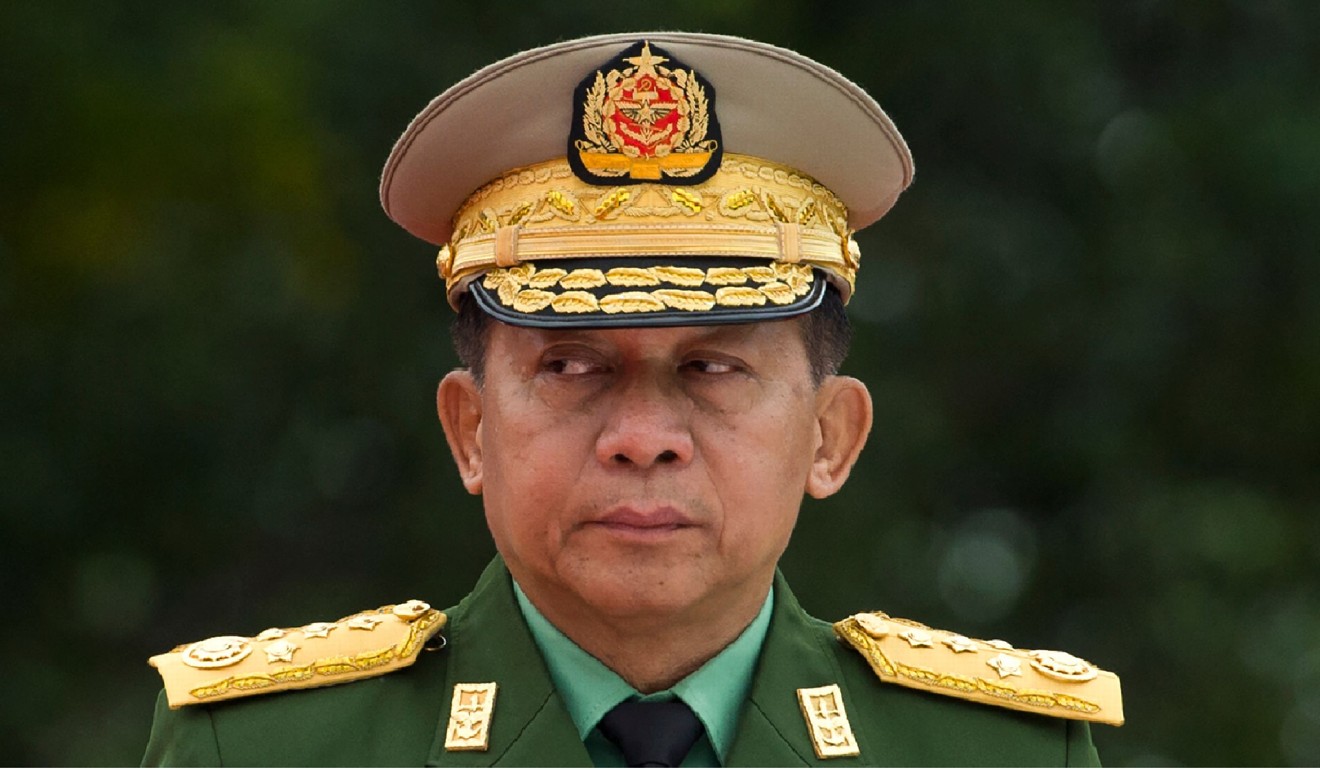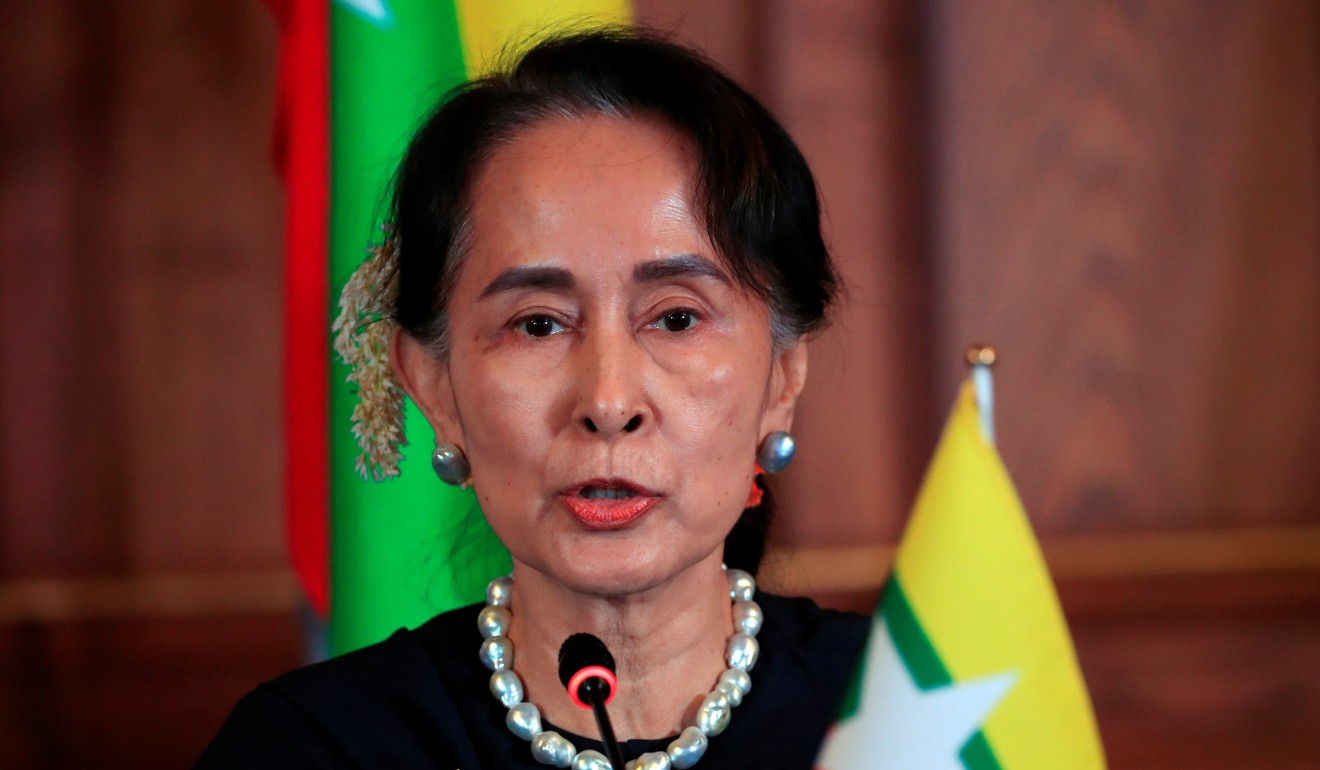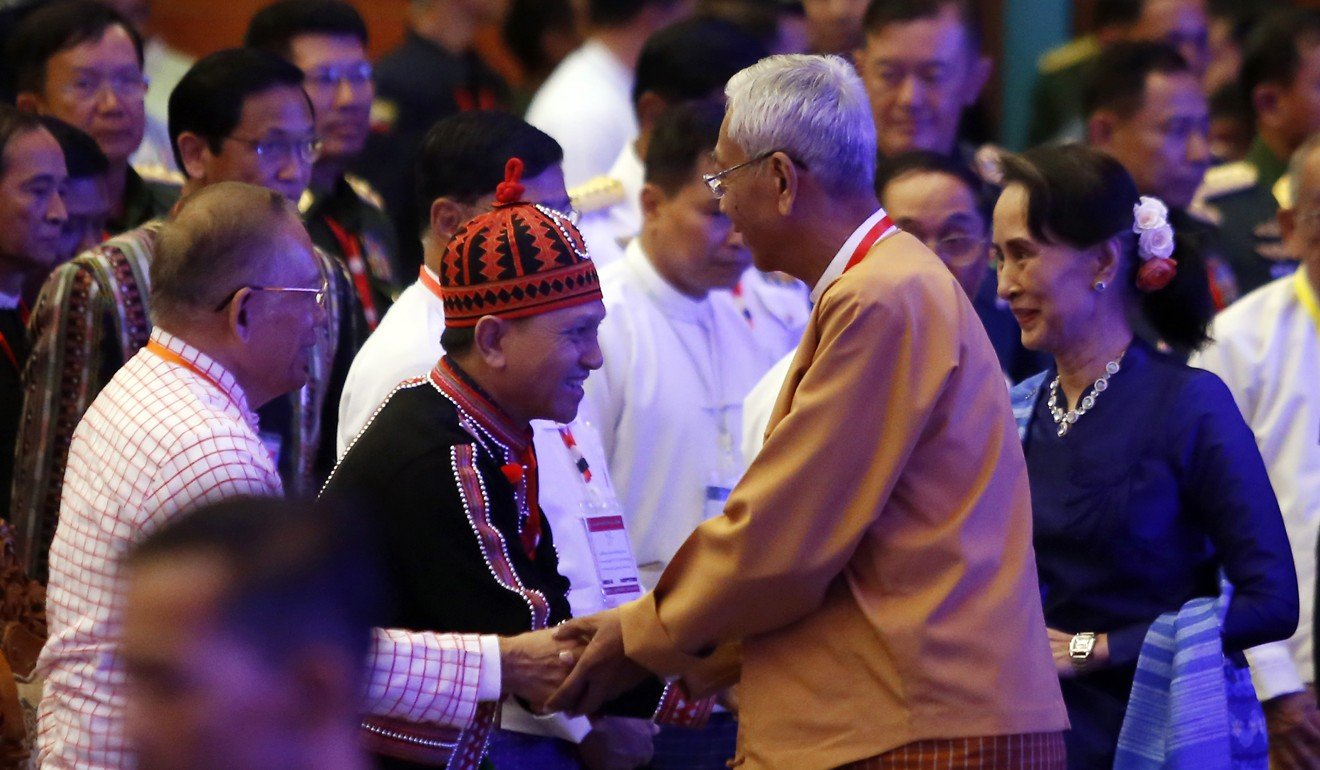
Can Myanmar find internal peace with its ethnic rebels? Aung San Suu Kyi is on it
Fighting in north of the country between government forces and ethnic groups has displaced some 100,000 people since 2011. This week’s peace talks are a bid to move the stalled peace process forward
Senior figures from Myanmar’s military and government will meet ethnic minority armed group leaders in Nay Pyi Taw on Monday, as part of plans to move ahead with the country’s stalled peace process.
The meeting, which marks three years since eight groups signed the government’s Nationwide Ceasefire Agreement (NCA), was originally planned to take place at Mount Popa, a mythical mountain in the centre of the country, but has since been moved to the capital. Senior General Min Aung Hlaing and State Counsellor Aung San Suu Kyi are expected to attend, as well as leaders of the 10 groups who signed the NCA.
As US-China trade war intensifies, Philippines seeks to balance ties and even benefit from mounting tensions
Myanmar’s peace process has stagnated in recent years, after being given renewed attention under former president Thein Sein. Soon after her National League for Democracy swept to power in the November 2015 general election, Aung San Suu Kyi said the peace process would be her top priority.
“The peace process is the first thing the new government will work on. We will try for the all-inclusive ceasefire agreement,” she said in a speech to mark Independence Day in January 2016. “We can do nothing without peace in our country.”
The approach under her leadership has had limited success, however. Fighting continues in the north of the country, in particular between the Tatmadaw – the country’s military – and the Kachin Independence Army, where more than 100,000 people have been displaced since renewed clashes began in 2011.

A rare bright spot came in February, when two ethnic armed groups – the New Mon State Party and the Lahu Democratic Union – signed the NCA, adding to the eight groups who signed the deal in October 2015.
Padoh Saw Kwe Htoo Win, vice-chairman of the Karen National Union, said he hoped next week’s talks would advance the peace process.
“These are the first official talks between the leaders of the government, military and the 10 leaders of the ethnic armed groups,” he said. “I hope we will get immediate answers from the summit by exchanging views from all sides.”
He said he expected the talks to focus on forming a federal union, reviewing the political dialogue and finding a way to bring non-signatories to the NCA.
US-China tensions: is war the endgame in the South China Sea?
A coalition of groups known as the Federal Political Negotiation and Consultative Committee (FPNCC) has until now rejected the NCA, saying it does not represent an effective path to peace in Myanmar.
However, in July the powerful United Wa State Army, which leads the seven-member FPNCC, said it would consider signing the NCA if the government and Tatmadaw produced a written agreement promising that the accord could be changed.
Many ethnic armed groups also remain distrustful after comments made by military chief Min at the government’s landmark peace summit last July appeared to blame them for the stalled peace process.
“If you really love your country and your race, I would like to urge you to wipe out the civil armed conflicts that hinder the development of the country,” he said in his opening remarks at the 21st Century Panglong Union Peace Conference in Nay Pyi Taw.

On Wednesday, four civil society groups released a statement condemning ongoing violence in Shan State, where fighting has occurred between the Tatmadaw and groups including the Ta’ang National Liberation Army and the Shan State Army-South in recent months.
“The absence of rule of law has intensified conflict among different communities and sown divisions and ethnic hatred through the spread of social media,” said the statement, which was signed by groups including the Shan Women’s Action Network and the Lahu Women Organisation.
The statement referenced the October 5 killing of a well-respected monk in Kyaukme, Shan State, by two unknown gunmen.
“Grave human rights violations have been committed including arbitrary and unreasonable arrests, detention, torture, killing and forced disappearances that have blocked and restricted movements,” the statement said.
Rising Sun flag puts Korean, Japanese navies on collision course
There were 25 armed clashes nationwide in August, down from a high of 92 in May, with most taking place in Shan State, according to data from the Myanmar Institute for Peace and Security (MIPS).
Political analyst Sai Wansai described the current status of the peace process as “very grim”.
“The government-military clique is more concerned with how to overcome international pressure rather than achieving real peace and reconciliation, much less the genuine federal union acceptable to all,” he said, referring to international criticism of the handling of the crisis in Rakhine State, where an estimated 700,000 Rohingya fled a brutal army crackdown last year.
A UN fact-finding mission said senior military officials, including Min, should be investigated for genocide for their role in the crisis.

Sai Wansai said next week’s talks were little more than an attempt by the army and the government to reclaim their “badly tarnished international standing”.
He called on the government and the military to get off their “ethnocentrism, or Burmanisation high horse” and to work alongside the country’s ethnic minorities to end decades of fighting.
There was optimism from other quarters, however.
Morgan Michaels, a researcher for MIPS, said the peace process was deadlocked, with the military and government unable to agree with ethnic armed groups about what a peace deal would look like.
“The government and Tatmadaw want the ethnic armed organisations to sign an agreement saying they will not secede from the union,” he said.
“If they do that, the government and Tatmadaw have said that the [organisations] will then be granted self-determination, state constitutions … that they have included in their package. But the organisations do not want to sign the agreement.”
Can India and Russia find common ground on China?
Another disagreement, he said, was that the Tatmadaw wanted to be regarded as the country’s only army, which some ethnic armed groups were reluctant to agree to, especially if it meant they had to disarm.
“From a political standpoint, the peace process is at an impasse. But there is the possibility of getting more groups to sign the NCA,” Michaels said.
He also disagreed that next week’s talks were part of plans to distract international attention from the Rakhine issue, but rather were an attempt to break the deadlock between the government, military and ethnic armed groups.
“The best thing that could be achieved is that the two sides are able overcome the deadlock and rebuild some trust,” he said. ■
Additional reporting by
Win Zar Ni Aung

